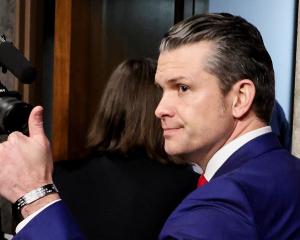Sydney certainly knows how to throw a party.
The extraordinary scenes played out on the city's streets over the course of the World Youth Day week, and relayed on television screens for huge world audiences, or reported in newspapers or on radio bulletins, have been in some respects reminiscent of the 2000 Sydney Olympics.
In other ways they have surpassed them. For this was a party quite unlike any other: five days and nights of peace, love and Christianity, enjoyed by young pilgrims from around the world; no alcohol, little trouble, barely even a hint of disorder.
To cap it all, the crowd at Sunday morning's Mass at Randwick Racecourse swelled to an estimated 350,000.
So it had been during a week of festivities for the faithful presided over by Pope Benedict XVI and labelled by some the Church's version of Woodstock.
The music was certainly there, with more than 165 concerts staged; but so were the prayer meetings, the Masses, the addresses by other Catholic luminaries, the staging of the Stations of the Cross - said to have been televised to an audience of 500 million - and the centre-stage role of the Pope himself.
In the wash-up to this remarkable gathering, perhaps aided and abetted by the sort of relaxed friendliness and ambience that so becomes our Australian cousins, it is being said that in Sydney the Pope began, finally, to reveal the hallmarks of his papacy.
To date, he has been, possibly unfairly, characterised by the most pronounced public qualities of his former self: Cardinal Joseph Ratzinger, a cool and austere intellectual German theologian - and an arch-conservative one at that.
But in the company of so many tens of thousands of smiling young pilgrims, and blessed by five days of clement Sydney winter sun, he reportedly showed a sense of humour and common humanity, allied to a genuine personal warmth. There were even flashes of charisma.
In the vernacular of the land, the Pope seemed to become, if not a superstar, a fair dinkum good bloke.
But World Youth Day 2008 was not simply a prayer party. There were serious matters for the Pontiff to attend to, not least the legacy of sexual abuse which he has inherited. Such "misdeeds, which constitute so grave a betrayal of trust, deserve unequivocal condemnation", he said.
He was "deeply sorry for the pain and suffering the victims have endured", and said that those responsible for "these evils" must be brought to justice.
For some, understandably, this apology will not have gone far enough; for others it went further than the Pope appeared to have gone before, but if the 81-year-old Pope was intent on addressing the sins of the past, he also had his sights clearly on the future - and the challenges and problems facing the young people who had gathered to hear him.
In the homily of the Randwick Mass he alluded to the cults of individualism and consumerism, calling for his audience to instead embrace the "underground river" of Christian values that would help provide firm foundations.
At a more secular level he called on world faiths and religions to unite in combating "sinister and indiscriminate violence".
And his farewell from Australia was marked by Prime Minister Kevin Rudd's announcement of a resident ambassador to the Holy See in Rome, in the form of former deputy prime minister Tim Fischer - denoting a deepening of Australia's relationship with the Vatican.
"It will," said Mr Rudd, "allow Australia to expand dialogue with the Vatican in areas including human rights, political and religious freedom, food security, arms control, refugees and people trafficking."
To this he might have added issues that continue to worry many Catholics and non-Catholics alike: contraception, especially in the Third World, the celibacy of the priesthood, the role of women in the Church, and so on.
Those are issues that will continue to be debated, including by many of the young people present in Sydney.
Whatever one's personal views or faith, and how they impact on these matters, there can be less debate about the significance of the World Youth Day 2008: for vast numbers of young people from greatly differing cultures and backgrounds, there are common values to be found in the Church and its teachings.
In a world that so often sees itself as hopelessly fractured, driven by difference and intolerance, rather than compassion and hope, that in itself is cause for celebration.












